
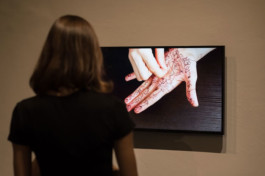
Whether wars produce weapons, or weapons produce wars, is one of the growth questions of national arms industries. And art too does not remain passive on this subject. In their works and through their activism, artists take a stand. However, the art world also profits from war and contributes its fair share to the accumulation of capital of corporations that produce weapons and deliver them to war zones.
CURATorial
The exhibition Krieg kuratieren (Curating war) brings international artists together whose works move along the interface between art and war. The exhibition deals with various aspects of war, the resulting conflicts, and the opportunities for action in the field of art. Some artistic positions question the economic base of the art world. Others try to find out how art shapes memory and creates a space for coping with war experiences, in order to shed light on the cultural hegemony in geopolitical spaces.
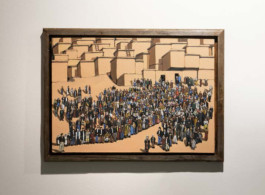
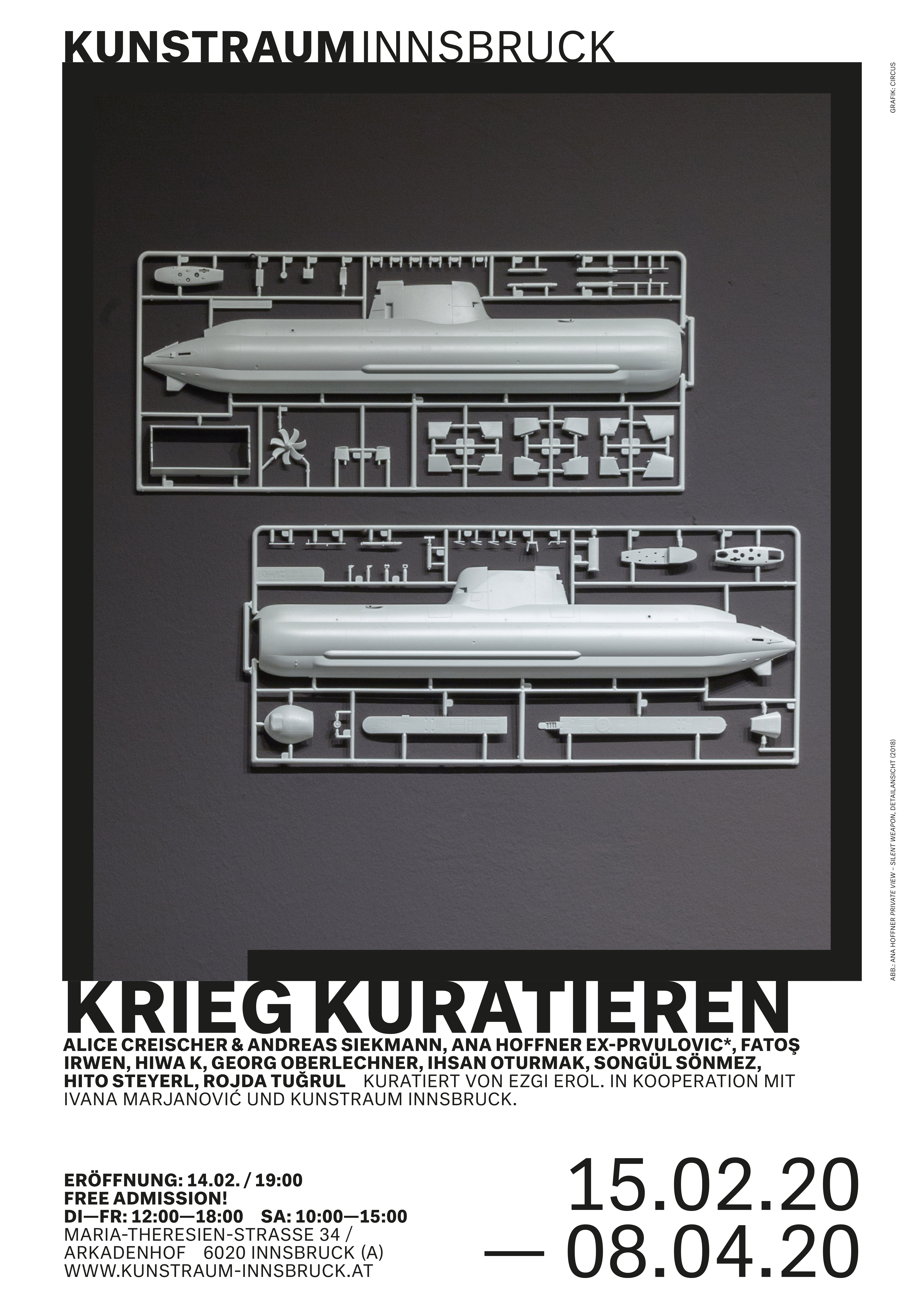
Second Edition
Group exhibition
Kunstraum Innsbruck
2020
Curated by Ezgi Erol
Artists Alice Creischer & Andreas Siekmann, Ana Hoffner ex-Prvulovic*, Fatoş Irwen, Hiwa K, Georg Oberlechner, Ihsan Oturmak, Songül Sönmez, Hito Steyerl, Rojda Tuğrul.
In Cooperation with Ivana Marjanovic and Kunstraum Innsbruck
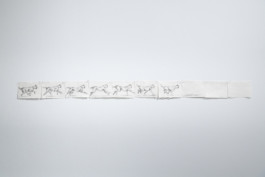
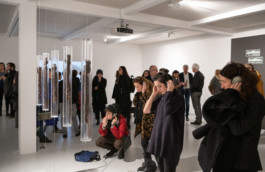
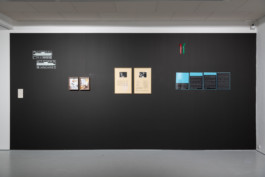
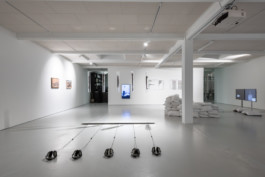
PRESS ON CURATING WAR,
SECOND EDITION
Ivona Jelčić, “Krieg kuratieren”: Kunst auf dem Schlachtfeld der Moral
DerStandard, 17.02.2020
Barbara Unterthurner, Unheimliche Allianzen: „Krieg kuratieren“ in Innsbruck
Tiroler Tageszeitung, 14.02.2020
Interview from Patrizia Jilg,
Mit Kunst Geld waschen,
ORF-TVthek (online 14–21th of February 2020)
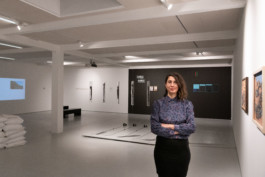
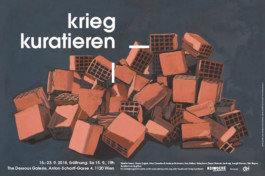
First Edition
Group exhibition
Dessous Gallery
2018
Curated by Ezgi Erol
Artists
Baran Çağınlı, Alice Creischer & Andreas Siekmann, Ana Hoffner, Fatoş İrwen, İhsan Oturmak, belit sağ, Songül Sönmez, Hito Steyerl
The exhibit Curating War deals with the question of how war is organized and which forms can be used to display the relationship between art and war in a political exhibit format. The topics discussed within this format are art and the process of (not) coming to terms with war, as well as the relationship between arms trade and production and art institutions.
The exhibit also pursues the question of “what to do?” when an exhibit space (in) directly supports continuities of war policies and censors or disqualifies pieces. Which connections can be made between censorship in art institutions and the continuities of war? Proceeding from this critique of institutions, a collective and social memory is brought into relation to art. Can art also be considered a social and collective memory?
In artistic pieces and round table talks, the exhibit will discuss how historically meaningful spaces, which have been destroyed by war policies, and associated, contradictory politics of memory can be conveyed.
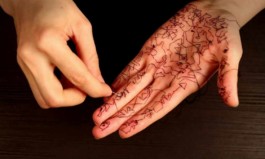
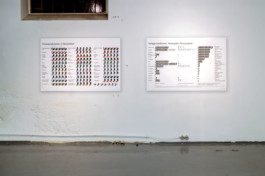
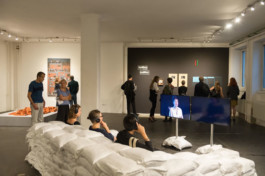
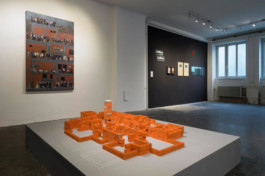
PRESS ON CURATING WAR,
FIRST EDITION
Almuth Spiegler, Ist Kunst für Politik überhaupt zuständig?
Die Presse, 5.9.2018
Samuel Zetting, Wo sich Kunst und Krieg widersprechen
WienerZeitung, 15.9.2018
Roman Gerold, Ein Fest über Grenzüberwindungen
DerStandard, 09/2018
Wienwoche zeigt die Konflikte
Orf, 09/2018
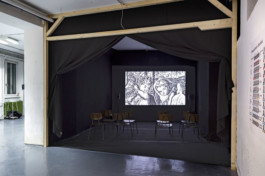
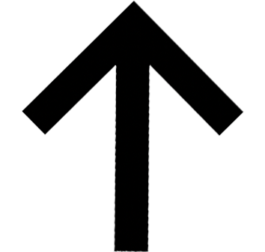
CURATorial
CURATING WAR

Whether wars produce weapons, or weapons produce wars, is one of the growth questions of national arms industries. And art too does not remain passive on this subject. In their works and through their activism, artists take a stand. However, the art world also profits from war and contributes its fair share to the accumulation of capital of corporations that produce weapons and deliver them to war zones.
The exhibition Krieg kuratieren (Curating war) brings international artists together whose works move along the interface between art and war. The exhibition deals with various aspects of war, the resulting conflicts, and the opportunities for action in the field of art. Some artistic positions question the economic base of the art world. Others try to find out how art shapes memory and creates a space for coping with war experiences, in order to shed light on the cultural hegemony in geopolitical spaces.

Second Edition
Group exhibition
Kunstraum Innsbruck
2020
Curated by Ezgi Erol
Artists Alice Creischer & Andreas Siekmann, Ana Hoffner ex-Prvulovic*, Fatoş Irwen, Hiwa K, Georg Oberlechner, Ihsan Oturmak, Songül Sönmez, Hito Steyerl, Rojda Tuğrul.
In Cooperation with Ivana Marjanovic and Kunstraum Innsbruck






PRESS ON CURATING WAR,
SECOND EDITION
Ivona Jelčić, “Krieg kuratieren”: Kunst auf dem Schlachtfeld der Moral
DerStandard, 17.02.2020
Barbara Unterthurner, Unheimliche Allianzen: „Krieg kuratieren“ in Innsbruck
Tiroler Tageszeitung, 14.02.2020
Interview from Patrizia Jilg,
Mit Kunst Geld waschen,
ORF-TVthek (online 14–21th of February 2020)
First Edition
Group exhibition
Dessous Gallery
2018
Curated by Ezgi Erol
Artists
Baran Çağınlı, Alice Creischer & Andreas Siekmann, Ana Hoffner, Fatoş İrwen, İhsan Oturmak, belit sağ, Songül Sönmez, Hito Steyerl

The exhibit Curating War deals with the question of how war is organized and which forms can be used to display the relationship between art and war in a political exhibit format. The topics discussed within this format are art and the process of (not) coming to terms with war, as well as the relationship between arms trade and production and art institutions.
The exhibit also pursues the question of “what to do?” when an exhibit space (in) directly supports continuities of war policies and censors or disqualifies pieces. Which connections can be made between censorship in art institutions and the continuities of war? Proceeding from this critique of institutions, a collective and social memory is brought into relation to art. Can art also be considered a social and collective memory?
In artistic pieces and round table talks, the exhibit will discuss how historically meaningful spaces, which have been destroyed by war policies, and associated, contradictory politics of memory can be conveyed.





PRESS ON CURATING WAR,
FIRST EDITION
Almuth Spiegler, Ist Kunst für Politik überhaupt zuständig?
Die Presse, 5.9.2018
Samuel Zetting, Wo sich Kunst und Krieg widersprechen
WienerZeitung, 15.9.2018
Roman Gerold, Ein Fest über Grenzüberwindungen
DerStandard, 09/2018
Wienwoche zeigt die Konflikte
Orf, 09/2018
